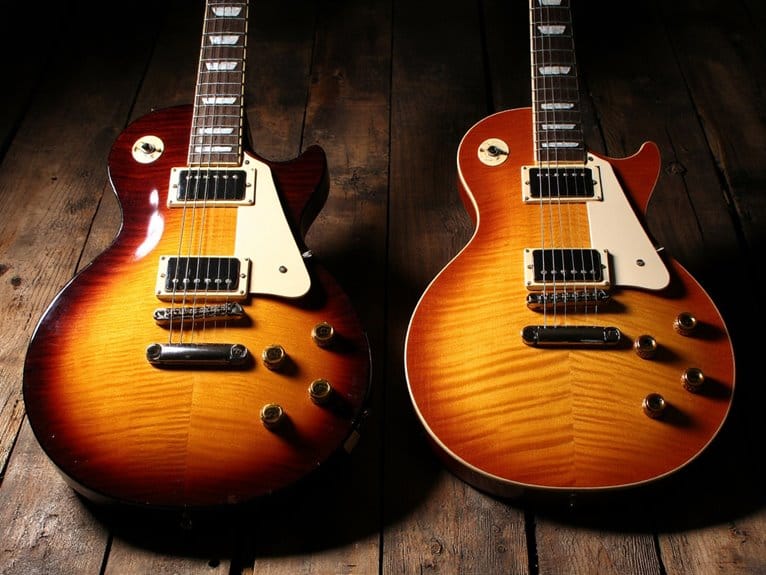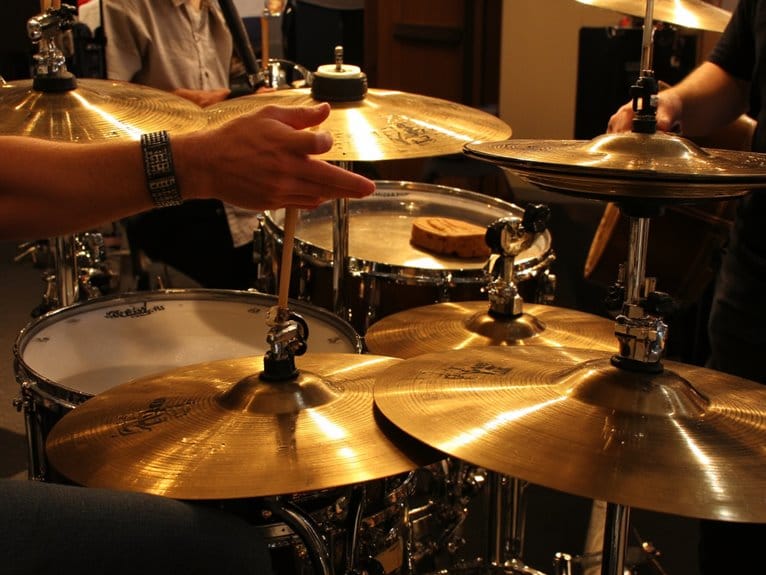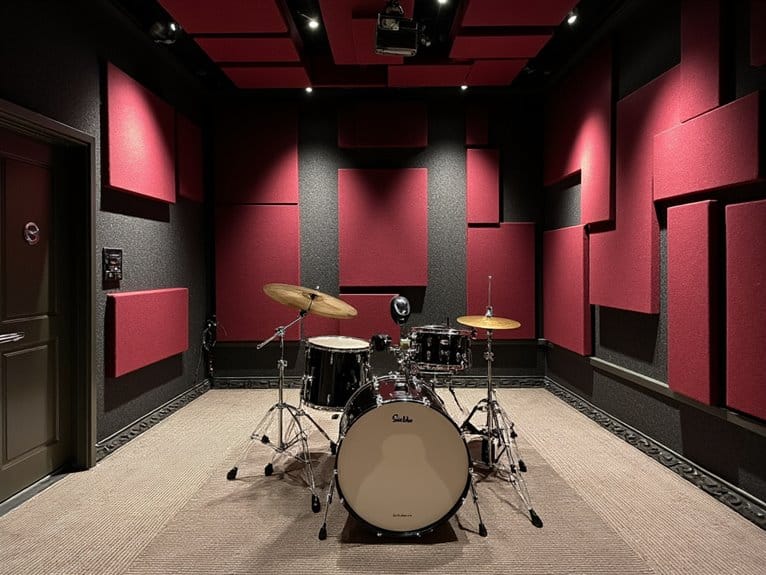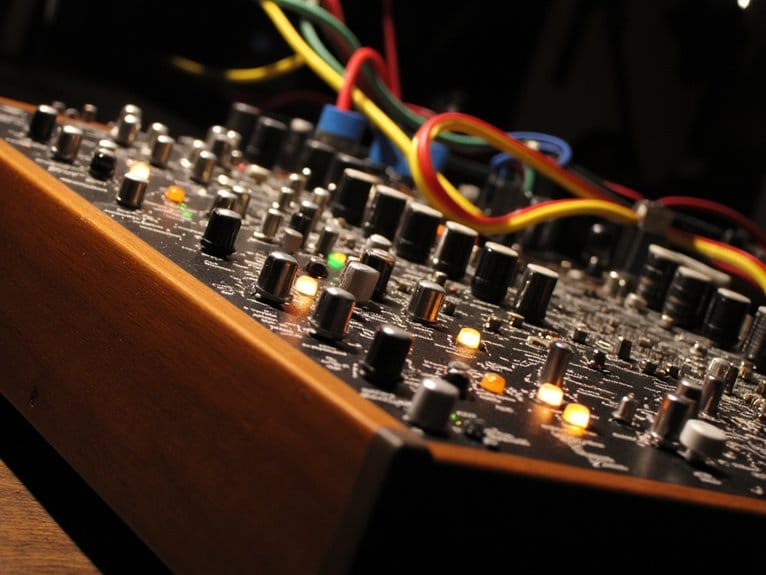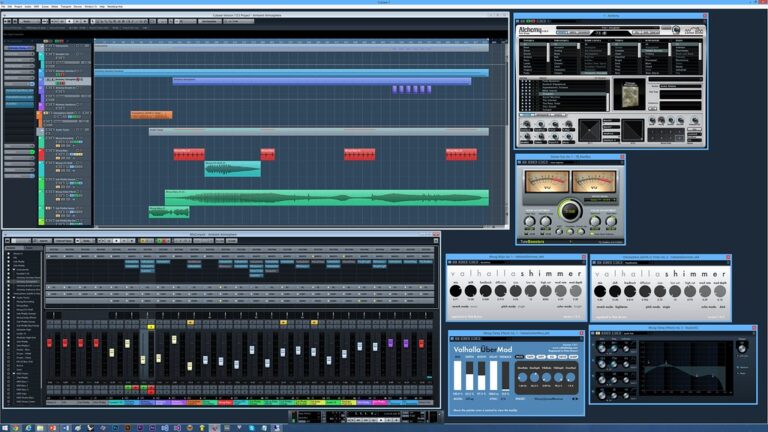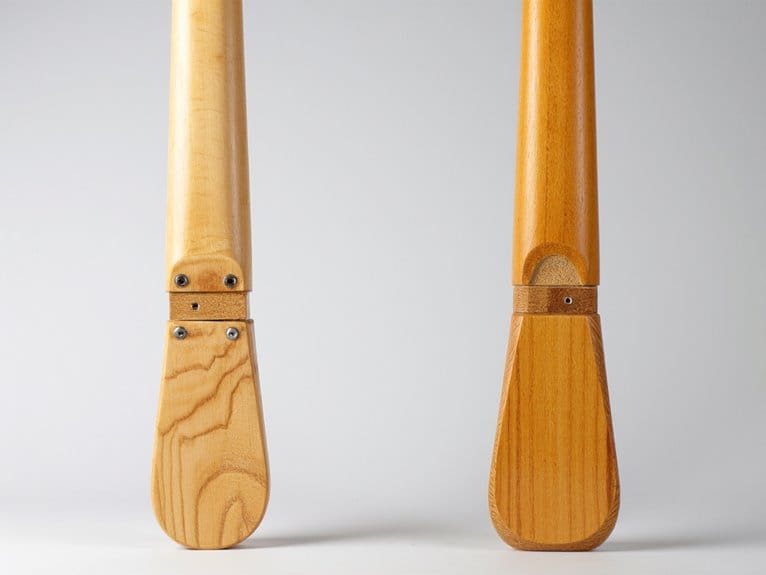Differences Between Gibson and Chinese Replicas
When you’re comparing Gibson guitars to Chinese replicas, you’ll notice Gibson’s superior mahogany and maple construction versus replicas’ basswood materials, which translates to dramatically different tonal characteristics and build quality. Authentic Gibsons, priced between $3,500-$7,000, feature custom-wound pickups and premium components that deliver balanced frequency response, while $250-$900 replicas often produce weaker signals with compromised clarity. The substantial price difference reflects Gibson’s investment-grade craftsmanship and professional-level performance that becomes even more apparent when you explore the technical details.
We are supported by our audience. When you purchase through links on our site, we may earn an affiliate commission, at no extra cost for you. Learn more.
Notable Insights
- Gibson guitars use high-grade mahogany and maple while Chinese replicas often use inferior woods like basswood.
- Authentic Gibsons cost $3,500-$7,000 compared to Chinese replicas priced at $250-$900.
- Gibson features custom-wound pickups for balanced sound while replicas often have weaker signals and clarity issues.
- Gibson employs solid wood construction and strict seasoning processes while replicas frequently use laminated materials.
- Gibson guitars maintain superior resale value as investment-grade instruments while replicas depreciate rapidly.
Build Quality and Material Differences
When examining the fundamental differences between genuine Gibson guitars and their Chinese replicas, the most striking disparities emerge in build quality and material selection, areas where cost-cutting measures become immediately apparent to anyone who’s spent time handling both instruments.
You’ll notice that Gibson’s craftsmanship quality stems from their use of high-grade mahogany bodies and maple tops, carefully selected for tonal properties, while replicas typically substitute inferior woods like basswood or lower-grade alternatives.
The wood origin matters greatly here, as Gibson’s strict seasoning processes guarantee stability and reduce warping over time. In contrast, Chinese replicas often suffer from inconsistent moisture content, potentially causing structural issues.
Gibson’s meticulous wood seasoning processes ensure structural integrity, while Chinese replicas frequently suffer from moisture inconsistencies that compromise long-term stability.
Additionally, where Gibson uses solid wood construction, replicas frequently employ laminated materials beneath attractive veneers, compromising both sound quality and long-term durability.
Sound Performance and Tonal Characteristics
How dramatically does the tonal performance separate authentic Gibson guitars from their Chinese counterparts? The difference becomes immediately apparent when you plug in and start playing, as pickup performance creates the foundation for everything you’ll hear through your amplifier.
Gibson’s custom-wound pickups deliver consistent output with balanced frequency response across bass, mids, and treble, while Chinese replicas typically suffer from weaker signals and compromised sound clarity. You’ll notice replicas often sound muddy or harsh compared to Gibson’s articulate tonal character.
The electronics and wiring quality further amplifies these differences, with Gibsons maintaining signal integrity while replicas introduce unwanted noise and interference that degrades your overall tone. Premium components in authentic Gibsons feature advanced shielding technologies that minimize interference and ensure clean signal transmission.
Understanding different pickup configurations like H-H, HSS, and SSS can help you evaluate how various guitar models achieve their tonal versatility and sonic characteristics.
- Superior wood resonance in Gibsons provides richer sustain and harmonic complexity
- High-grade components guarantee reliable amplification response across different volume levels
- Precise fretwork and neck construction contribute to consistent note definition and tonal accuracy
Price Points and Market Positioning
The most striking difference between Gibson and Chinese replica guitars becomes crystal clear the moment you check price tags, where authentic Gibson Les Paul models command anywhere from $3,500 to over $7,000 while their Chinese counterparts hover around $250 to $900.
Price tags tell the whole story: Gibson Les Pauls cost $3,500-$7,000 while Chinese replicas run just $250-$900.
This dramatic price point comparison reveals fundamentally different manufacturing philosophies, with Gibson targeting professional musicians who value craftsmanship and brand heritage, while Chinese manufacturers focus on budget-conscious beginners seeking visual similarity without premium costs.
Your target customer analysis shows Gibson positioning itself as an investment-grade instrument with strong resale value, whereas replicas serve disposable learning tools with rapid depreciation.
Licensed alternatives like Epiphone occupy middle ground, offering some brand authenticity around $400 to $900, bridging the gap between generic copies and genuine Gibsons.
On a final note
You’ll find that while Chinese replicas can offer decent playability at budget-friendly prices, they can’t quite match Gibson’s premium craftsmanship, tonewoods, and electronics that I’ve come to appreciate over years of testing. If you’re starting out or need a backup guitar, replicas serve their purpose well, but when you’re ready for that authentic sustain, resonance, and build quality that defines the Gibson experience, you’ll understand why guitarists still choose the original.

